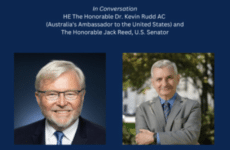By: Cassidy Rota | Staff Writer
Whether they are seen as promoting self-confidence or serving as a reflection of self-absorption, a “selfie,” is much more than a silly slang word.
Recently, the anchors of The Today Show on NBC have been promoting a more positive outlook on body image, focusing specifically on the concept of selfies. In their campaign called, #LoveYourSelfie, the anchors are working to encourage people to love themselves as they are and not being afraid to show that self-confidence off. To show their commitment, The Today Show anchors went on national TV makeup free and allowed their “selfies” to be shown to viewers.
Members of the Salve Regina University community had varying opinions on “selfies.”Allison Gold is a sophomore nursing major at Salve who doesn’t have the same feelings towards selfies as The Today Show anchors. Gold admits to taking and uploading selfies to social media platforms such as Instagram. “One ‘selfie’ here and there is okay,” Gold said, “one everyday is ridiculous.” Gold believes that the more “selfies” a person uploads the more likely viewers are to react negatively towards the uploader. Gold also believes that most of the time “selfies” are not always associated with self-confidence.
Gold regards most “selfies” as more of a popularity contest than a statement of self-confidence. Gold says excessive sefies are “conceited not confident,” but the number of “selfies” you upload has an effect on her opinion of them. “The more ‘selfies’ a person uploads, the more negativity you attract to the concept and yourself,” Gold says. Gold agrees that some “selfies” are okay, but overall, try and keep the number uploaded to a minimum.
Dylon Swift, a junior studying business administration believes that most people who upload selfies onto social media outlets are almost always looking for satisfaction. Swift doesn’t upload “selfies” on sites like Instagram or Twitter but will occasionally send “selfies” through the popular app, Snapchat. Swift doesn’t consider Snapchats as “selfies” because he doesn’t use the app as a way to gain satisfaction from others. “People who upload ‘selfies’ onto Instagram and other places are looking for satisfaction, they want likes and comments,” Swift said.
Swift believes that even people who are confident in themselves still want the satisfaction that comes with likes on selfies. “People who are confident and know they’re attractive still want those likes on their selfies,” says Swift. “Anyone who uploads a ‘selfie’ is looking for the likes.”
Dr. Jim Ludes, the executive director of the Pell Center for International Relations and Public Policy at Salve Regina and provided a different perspective on selfies. “We called them goodluck pictures,” Ludes said, “they were an excuse to put your arm around someone.” Ludes does not find the selfie to be any sort of innovation. “Someone gave goodluck pictures a label, which makes it a ‘thing’,” says Ludes. Ludes says that people like to project the best version of themselves, and selfies are an easy way to achieve that.
“Everyone on social media is looking for an ego stroke,” Ludes said, “it doesn’t matter if that comes in the form of uploading a selfie.” Ludes sees people on social media as being narcissistic and social media itself as existing purely for bragging. “Excessive ‘selfies’ are narcisstic,” says Ludes.














